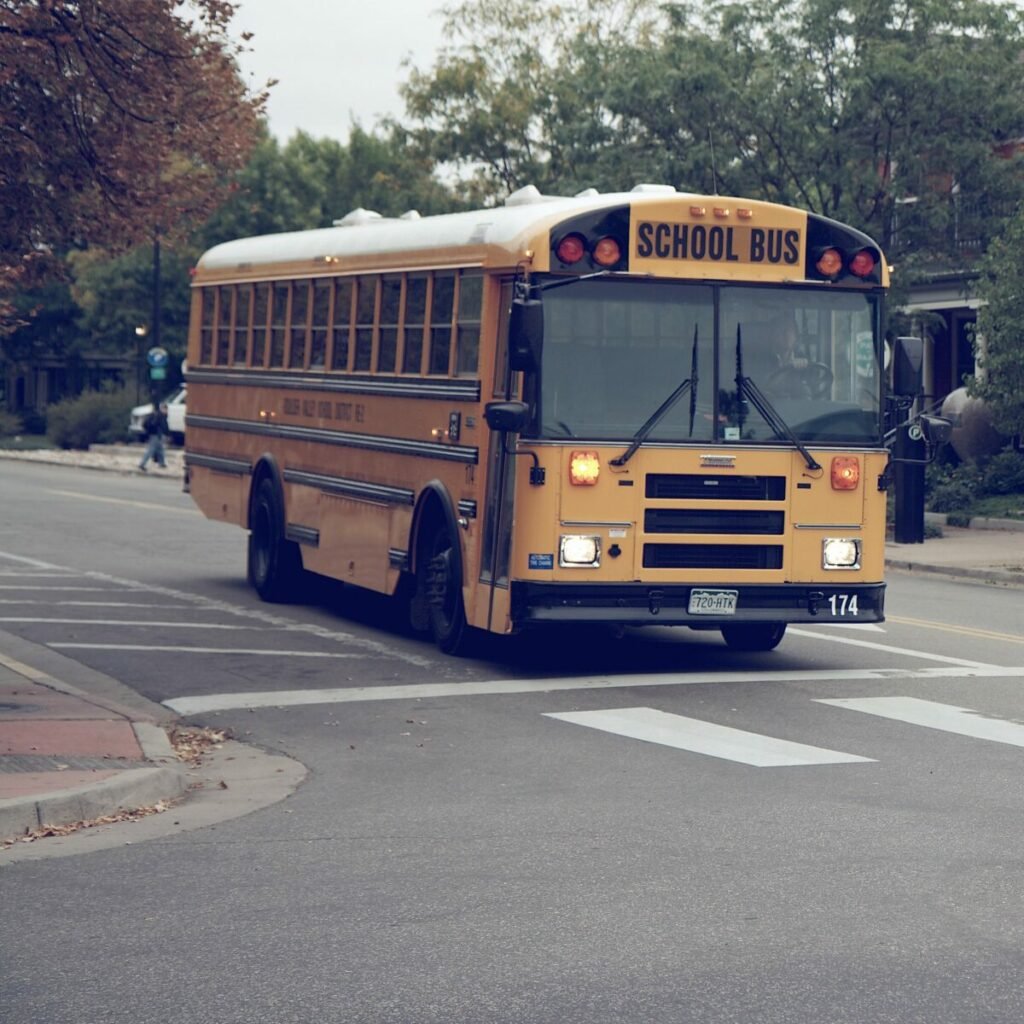Jeffrey Coughter has earned an Honorable Mention in Streetlight’s 2023 Essay/Memoir Contest
On a sunny, breezy late October morning in 1959, I was among a handful of kindergartners waiting for a school bus near the front stoop of Boucher’s, a restaurant at the corner of Long Ridge Road and Stark Place in Stamford, Conn. The bus was late, but we didn’t know how late. We were all five, or nearly five years old, and “time,” when you’re five is not quite the same as when you’re sixty-five. We waited that crisp, autumn morning, as little kids wait, for the bus to take us to the afternoon kindergarten session at Newfield School.

In those days of Diller and Dollar and the Ten O’clock scholar, split sessions for kindergartners were the norm in Stamford. Half the kids our age rode a bus with the older kids at nine o’clock and came home at noon; the other half rode the noon bus to school and rode home with the older kids. We rode that noon bus. Without the supervision of parents, who were not required at bus stops in those days, or the guiding light cast by upper elementary students, long since at their desks, we were on our own. Jackie Baker and Eddie Arroyo, whose uncle was a relief pitcher for the Yankees, stood along with Louise Surwilo, Bonnie Monte, and me, and waited. We became bored, if not a little bit concerned, but for the most part thought nothing about the delay. An acorn on the sidewalk took five minutes to examine, reflect on, and throw at Jackie before Eddie swallowed it. I refuted Louise’s claim that my new shoes were not real Buster Browns by sitting on my lunch box, removing my left shoe, and showing her the picture of Buster and his dog Tige glued to the inside heel. We killed time, but we didn’t waste it.
Just after Louise suggested we all go up the hill to ask her mother for a ride to school, the bus approached. We could see it from a few blocks away and had gathered our lunch boxes and whatever else we were toting by the time it reached Boucher’s stoop. Boarding, the only questions we had were where and with whom we were going to sit. That no one else was on the bus and that the driver was not the same fellow who’d driven the day before, or the day before that, did not concern us.
The concept of territory, like time, is beyond most five-year-olds. When you are a baby you don’t go far and, as you crawl and especially when you begin to toddle, there is nearly always someone around to prevent you from going where you should not. At some point, after you stop toddling, but before you can ride a two-wheeler, you begin to take notice of things beyond yourself and maybe, if you’re really sharp, of things outside your house and yard. The idea that there is a specific route from your house to Grandma’s or to the A&P or to school doesn’t really occur to you until you’re about seven or eight. When you’re five, and going somewhere in a car or bus, you just get in that car or on that bus and wait until you’re wherever it is you’re supposed to be going. Then, you get out. That’s what you do and, to our peril, that’s what we did that day.
That the bus driver was not familiar to us was less significant than the fact that neither we nor the route to Newfield School were familiar to him. As it happened, that driver was as new to his role as we were to ours. He saw a group of kindergartners at a bus stop and, assuming he’d missed them during an earlier leg of his route, stopped, picked them up and took them to the nearest elementary school. Under the circumstances, his course was reasonable. The problem was that because of a quirk in school district boundaries, the nearest elementary school was Roxbury School and on top of everything else, Roxbury was, down to its last brick, identical to Newfield. Some years earlier, at the height of the post-war baby boom, our city fathers, recognizing not only the need for new schools, but an opportunity to save money, decided to use one set of plans for two elementary schools. One unfortunate result of their cost-saving decision was that upon our arrival at Roxbury School, we got off the bus, and following our daily routine walked across the bus platform to the school entrance nearest our classroom, and right on into our home away from home, Room K-l.
The first thing I noticed after entering the room was that class had already begun. Obviously, we were late. When you’re five, being late for school is cool so my first reaction to the scene that afternoon in K-l was a feeling that my fellow late arrivals and I were, indeed, cool. The second thing I noticed, as I turned toward the wall of cubby holes and coat hooks, was that someone else’s jacket hung from my hook. At about that point, the lady conducting the class spoke up. She asked us something like “Can I help you?” and the five of us turned and focused for the first time on the details of the scene before us. The teacher was not Miss Anderson and our classmates were strangers. They stared at us and we stared, dumbfounded, at them. We were in our classroom but somehow, it seemed, we were not. The walls and the furniture were as we had left them the day before and the venetian blinds were drawn the way Miss Anderson liked them. The block-letter ABCs, capital and lower case, were arranged in my estimation of their proper order above the blackboard, but the black silhouette cut-outs of our profiles, which Miss Anderson had taken such pains to draw, cut, and pin to the bulletin board above the hamster cage were absent. We continued to look at the strange kids in our seats and we were clueless.
Years later, I was reminded of this incident when I saw an episode of Star Trek in which Captain Kirk and a few other crew members of the Enterprise, in the course of exploring new worlds, wound up in some sort of alternative dimension. Their transporter, the device that scrambled their molecules and enabled them to travel instantaneously from the surface of that week’s featured planet to their starship, malfunctioned—a magnetic storm was the culprit, as I recall. They, and we, knew something was wrong when Mr. Spock greeted them wearing a van dyke he had not been wearing twenty minutes earlier.

When Louise started screaming, the ersatz teacher rose and, as she approached us, I said “Who are you and where is Miss Anderson?” I’m a little vague on the details of what was said then, but one thing led to another and, ultimately, another bus was summoned and we were delivered from the Roxbury dimension to our own. We arrived at Newfield and were met by a large group of adults, including the principal, Mr. Swenson, various other administrators, and dear Miss Anderson. We were late again but I didn’t feel cool this time.
The adults gathered on Newfield’s bus platform that day seemed to sense that we had been through something of an ordeal. If school psychologists had existed in 1959, I think we five would have been sent for some sort of counseling. As it was, we were patted on our heads and sent on our way. I don’t suppose any real harm resulted from our dimensional detour, though Louise never seemed quite right thereafter, and I don’t think it’s fair, sixty years later, to blame my life-long issues with authority on that one incident. Maybe we were lucky. We learned early, but hard, that things are not always quite as they appear and that those upon whom our well-being depends do not necessarily know what they’re doing.

Share this post with your friends.

